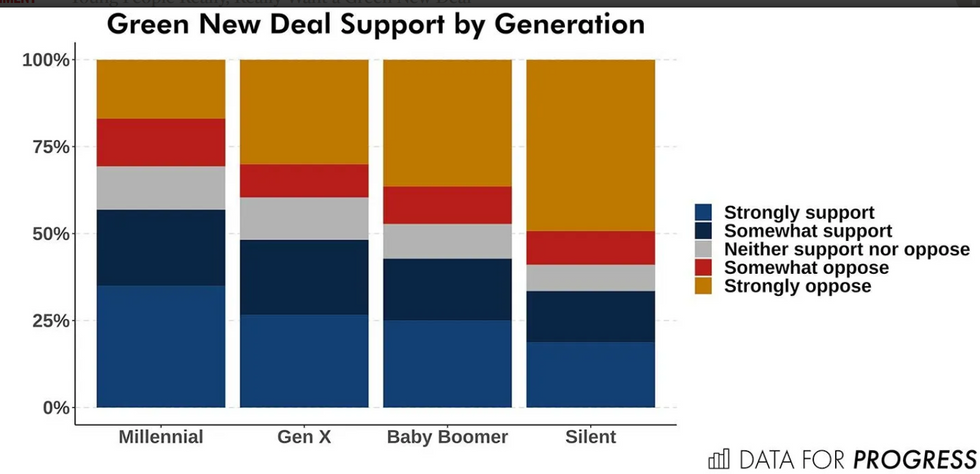The reality of climate change and method to address the issue has been a source of contention in the United States for far too long. While Republicans trail behind Democrats a great deal in the percentage who believe long-term, irreversible climate change is a real problem, an equally if not more important gap to acknowledge is that between generations.
A universally taught science concept in elementary school is the difference between weather and climate. Weather is the day-to-day condition of the atmosphere — rainy, sunny, etc. Climate is the weather of a particular geographic location over a long period of time. The weather in an area may be snowy on a particular January day but might overall have a warm climate (Trump has yet to learn this concept).
The gap between generational support for not only believing in the reality of climate change but if the government should take steps to prevent further harm on our planet is apparent. A few reasons that older generations may not support aggressive climate change policies are that many are not going to see the lasting impact of their harmful actions, may not want to acknowledge that their way of life for a majority of their life was detrimental to the environment, or that they simply do not think it is the government's role to further regulate current practices and lifestyles in the name of the environment (an argument supported by many conservatives).
The "Green New Deal," proposed earlier this month by Rep. Alexandra Ocasio-Cortez and Sen. Edward Markey is mainly a list of ideas and goals rather than a carefully laid-out plan, though aims to eliminate greenhouse emissions through the creation of millions of jobs in the renewable energy industry, moving toward public ownership (a major source of disagreement among Republicans and Democrats), and much more. This plan is a comprehensive overview of many sources of environmental degradation that our nation has not addressed, despite the majority of the nation believing the climate change is a real issue.
There will undoubtedly be a major shift in the operations of many companies due to aggressive climate change policies, which could have been avoided at a drastic level if our nation had chosen to make climate change prevention a priority. Unfortunately, according to the Intergovernmental Panel on Climate Change, global temperatures will rise to an irreversible level in 12 years if the United States and other countries that greatly contribute to rising temperatures do not take action. A sense of urgency has been lacking for far too long is crucial.
Written into the recently proposed Green New Deal is a section detailing how it will attempt to remedy the inequality of those most directly impacted by climate change. Vulnerable communities, particularly communities of color, are not seeing an equitable distribution in disaster funding to prevent damage inflicted by the increasing frequency and intensity of natural disasters that have resulted as an increase in rising global temperatures — Which, regardless of your age, should be a glaring flaw in our current system.
I personally doubt that the entirety of the recently proposed Green New Deal will be enacted, however, I believe that anyone who values the quality of human life, clean air, clean water, food sources, for not just those in the United States, but around the world, should be supportive of a Green New Deal.

















